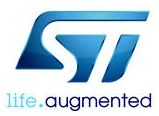GENEVA — (Marketwired) — 07/25/13 — (NYSE: STM), a global semiconductor leader serving customers across the spectrum of electronics applications, has perfected advanced features in its latest PC USB chips that significantly reduce the environmental impact of charging mobile devices.
As smartphones and media players typically connect to a PC for data exchange, users are tending also to charge their devices from PC USB ports. Indeed, the International Electrotechnical Commission-s (IEC) universal phone-charger standard[1] promotes USB charging by making use of the USB interface specification. The IEC says[2] the standard could help reduce the 51,000 tons of redundant chargers produced each year and cut the mobile industry-s annual greenhouse gas emissions by 13.6 million tons.
ST-s new STCC5011 and STCC5021 go a step further in saving energy and reducing CO2 emissions by allowing users to charge mobile devices from a USB port even when the computer is in software-controlled shutdown mode. Using a unique attach-detection feature, which is patented by ST and operates when the PC is shut down, the chips (called charger emulators) can detect when a mobile device has been connected. This enables the PC-s power supply to be activated for charging. The chips also monitor current to turn the power supply off when charging is complete and thereby maximize the energy savings. Other charger emulators require the PC to be in working or sleep mode to charge the device, which consumes more power than when the PC is in shutdown mode.
Charging in PC shutdown mode with the STCC5011 or STCC5021 improves the energy efficiency of USB charging and makes it more convenient for end users. Moreover, when the USB port is active and waiting for a device to be connected for charging, ST-s chips consume only 1/16 of the power of other charger emulators. This allows PCs to offer convenient USB charging with minimal impact on power consumption or PC battery life during normal use. Both chips have circuitry to avoid discharging the PC-s battery, which allows even the most mobile of users to charge devices safely while using the PC on battery power alone.
The STCC5011 has a 1A charge-current limit suitable for Apple iPod® and iPhone®. The STCC5021 has a limit of 2A for charging iPad® as well as iPod and iPhone. Both chips are compatible with the USB battery charging standard BC1.2, USB2.0, USB3.0, and Chinese telecommunications standard YD/T 1591-2009, which mandates use of USB charging to reduce electronic waste and protect the environment. They also support proprietary chargers such as BlackBerry® charging mode, as well as Apple® divider mode (for 1A and 2A charging, as described above).
Pin-selectable charger-emulation profiles
USB2.0-compliant USB data switch with 1000MHz bandwidth
Low-resistance (60 milli-ohm) integrated power switch
Built-in safety protection
Charging-indication output in DCP (Dedicated Charging Port) and CDP (Charging Downstream Port) modes
Support for remote wakeup in ACPI S3 mode (PC sleep mode)
Device attachment detection in ACPI G2 mode (shutdown/soft-off, or S5)
The STCC5011 and STCC5021 are in production now, available in the VFQFPN 16-pin 3 x 3 x 0.8mm package, priced from $0.75 for orders over 1,000 pieces.
For further information on ST-s USB charger emulators please go to
ST is a global leader in the semiconductor market serving customers across the spectrum of sense and power and automotive products and embedded processing solutions. From energy management and savings to trust and data security, from healthcare and wellness to smart consumer devices, in the home, car and office, at work and at play, ST is found everywhere microelectronics make a positive and innovative contribution to people-s life. By getting more from technology to get more from life, ST stands for life.augmented.
In 2012, the company-s net revenues were $8.49 billion. Further information on ST can be found at .
[1] IEC 62684
[2]
USB Chargers from STMicroelectronics
USB Chargers from STMicroelectronics_IMAGE
STMicroelectronics
Michael Markowitz
Director Technical Media Relations
+1 781 591 0354


You must be logged in to post a comment Login